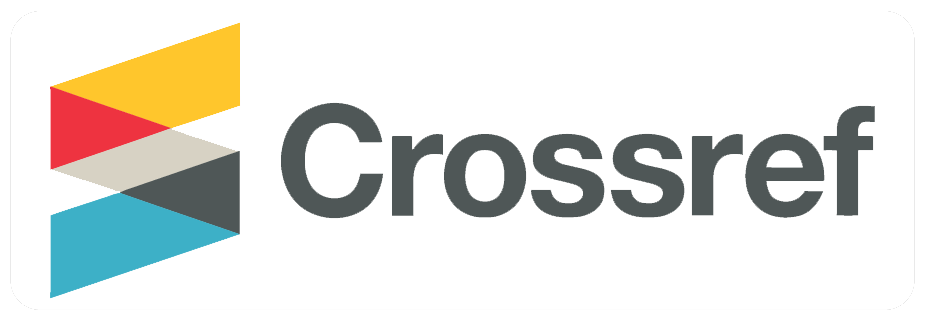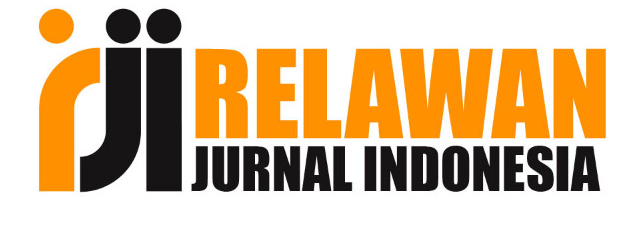Integrasi Model Kesuksesan Adopsi E-Commerce Berbasis Technological Frames of References (TFR) – Knowledge Management (KM)
DOI:
https://doi.org/10.36982/jiig.v13i2.2306Abstrak
This study aims to examine several variables supporting the implementation of e-Commerce websites as digital platforms in supporting the business activities of SMEs. Several previous studies have found several variables/factors that support the implementation of e-Commerce with each perspective raised, so that in this study the variables/factors raised are the extraction of all factors from various perspectives and are expected to accommodate different points of view and previous research. Factor extraction is carried out using the Principal Component Analysis (PCA) method using the SPSS 22 Version tool to identify variables/factors from various and various needs, several factors that have components will be extracted and viewed in one category so as to minimize ambiguity factors as e-Commerce Enablers. In this study, data were collected through interviews and online dissemination to Clothing Line Business Actors and staff using digital platform users as many as 75 respondents and obtained some supporting data related to the use of digital platforms in the application of e-Commerce in daily business. Based on the extraction results obtained 5 main drivers that become e-Commerce Enabler based on several models of e-Commerce implementation based on Technological Frames of References (TFR) and Knowledge Management, namely: Organizational Trigger (OT), Environmental Trigger (ET), Individual Intention (II) , Knowledge Aspect and Capability (KAC), and Technology Infrastructure (IT) with each factor with components extracted so as to minimize ambiguity and still accommodate various needs and perspectives.
Keywords : Specification Design, Information System, Integrated Document, Rational Unified Process, MASS Cargo
Referensi
Adam, S., Fuzi, N.M., Ramdan, M.R., Isa, R.M., Ismail, A.F.M.F., Hashim, M.Y., Ong, S.Y.Y., et al. (2022), “Entrepreneurial Orientation and Organizational Performance of Online Business in Malaysia: The Mediating Role of the Knowledge Management Processâ€, Sustainability (Switzerland), MDPI, Vol. 14 No. 9, available at:https://doi.org/10.3390/su14095081.
Albashrawi, M. (2021), Intention to Adopt E-Commerce: A Comparative Review Across Developed and Developing Economies, The African Journal of Information Systems, Vol. 13, available at: https://digitalcommons.kennesaw.edu/ajisAvailableat:https://digitalcommons.kennesaw.edu/ajis/vol13/iss1/6.
Amofah, D.O. and Chai, J. (2022a), “Sustaining Consumer E-Commerce Adoption in Sub-Saharan Africa: Do Trust and Payment Method Matter?â€, Sustainability, Vol. 14 No. 14, p. 8466.
Amofah, D.O. and Chai, J. (2022b), “Sustaining Consumer E-Commerce Adoption in Sub-Saharan Africa: Do Trust and Payment Method Matter?â€, Sustainability, Vol. 14 No. 14, p. 8466.
Amornkitvikai, Y., Tham, S.Y., Harvie, C. and Buachoom, W.W. (2022), “Barriers and Factors Affecting the E-Commerce Sustainability of Thai Micro-, Small- and Medium-Sized Enterprises (MSMEs)â€, Sustainability, Vol. 14 No. 14, p. 8476.
Awa, H.O., Ojiabo, O.U. and Emecheta, B.C. (2015), “Integrating TAM, TPB and TOE frameworks and expanding their characteristic constructs for e-commerce adoption by SMEsâ€, Journal of Science and Technology Policy Management, Emerald Group Publishing Ltd., Vol. 6 No. 1, pp. 76–94.
Castagna, F., Centobelli, P., Cerchione, R., Esposito, E., Oropallo, E. and Passaro, R. (2020), “Customer knowledge management in SMEs facing digital transformationâ€, Sustainability (Switzerland), MDPI, Vol. 12 No. 9, available at:https://doi.org/10.3390/su12093899.
Chen, D., Guo, H., Zhang, Q. and Jin, S. (2022), “E-commerce Adoption and Technical Efficiency of Wheat Production in Chinaâ€, Sustainability (Switzerland), MDPI, Vol. 14 No. 3, available at:https://doi.org/10.3390/su14031197.
Chien-Sing Lee and Lee-Yin Yew. (2022), “Enhancing customer satisfaction through open innovation communities: A comparison of knowledge management approachesâ€, Knowledge Management & E-Learning: An International Journal, Laboratory for Knowledge Management and E-Learning - The University of Hong Kong, pp. 81–102.
Chien-Sing Lee, L.-Y.Y. (2022), “Enhancing customer satisfaction through open innovation communities: A comparison of knowledge management approachesâ€, Knowledge Management & E-Learning: An International Journal, Laboratory for Knowledge Management and E-Learning - The University of Hong Kong, pp. 81–102.
Dirgantari, P.D., Hidayat, Y.M., Mahphoth, M.H. and Nugraheni, R. (2020), “Level of use and satisfaction of e-commerce customers in covid-19 pandemic period: An information system success model (issm) approachâ€, Indonesian Journal of Science and Technology, Universitas Pendidikan Indonesia, Vol. 5 No. 2, pp. 261–270.
Faradillah and Aprinaldi. (2019), “Knowledge management readiness for private university: A conceptual modelâ€, Journal of Physics: Conference Series, Vol. 1196 No. 1, available at:https://doi.org/10.1088/1742-6596/1196/1/012052.
Faradillah, F. (2017), “BCOR Analysis Affect The Adoption of Knowledge Management System ( KMS )â€, Vol. 4 No. 1.
Faradillah, F. (2018), “Determinasi Knowledge Management Success Factors pada Universitas Swasta di Palembang Studi Kasus : Universitas Indo Global Mandiriâ€, Vol. 09 No. 01, pp. 49–54.
Faradillah, F., Ermatita, E. and Rini, D.P. (2020), “Knowledge Management Barriers in Higher Education: Strategic Issues at Private Universityâ€, Vol. 172 No. Siconian 2019, pp. 189–193.
Feng, Z. and Chen, M. (2022), “Platformance-Based Cross-Border Import Retail E-Commerce Service Quality Evaluation Using an Artificial Neural Network Analysisâ€, Journal of Global Information Management, Vol. 30 No. 11, pp. 1–17.
Goretzki, L., Reuter, M., Sandberg, J. and Thulin, G. (2022), “Making sense of employee satisfaction measurement – A technological frames of reference perspectiveâ€, British Accounting Review, Academic Press, Vol. 54 No. 1, available at:https://doi.org/10.1016/j.bar.2021.101032.
Gu, J. (2022), “CEO Information Ability, Absorptive Capacity, and E-Commerce Adoption among Small, Medium, and Micro Enterprises in Chinaâ€, Sustainability (Switzerland), MDPI, Vol. 14 No. 2, available at:https://doi.org/10.3390/su14020839.
Hussain, A., Akbar, M., Shahzad, A., Poulova, P., Akbar, A. and Hassan, R. (2022), “E-Commerce and SME Performance: The Moderating Influence of Entrepreneurial Competenciesâ€, Administrative Sciences, MDPI, Vol. 12 No. 1, available at:https://doi.org/10.3390/admsci12010013.
Khalil, A., Abdelli, M.E.A. and Mogaji, E. (2022), “Do Digital Technologies Influence the Relationship between the COVID-19 Crisis and SMEs’ Resilience in Developing Countries?â€, Journal of Open Innovation: Technology, Market, and Complexity, MDPI AG, Vol. 8 No. 2, p. 100.
Kohont, A. and Ignjatović, M. (2022), “Organizational Support of Working from Home: Aftermath of COVID-19 from the Perspective of Workers and Leadersâ€, Sustainability (Switzerland), MDPI, Vol. 14 No. 9, available at:https://doi.org/10.3390/su14095107.
Orinaldi, M. (2021), “Dampak Pembatasan Kegiatan Masyarakat Terhadap Pertumbuhan Ekonomi: Suatu Kajianâ€, J-MAS (Jurnal Manajemen Dan Sains), Universitas Batanghari Jambi, Vol. 6 No. 2, p. 391.
Perbendaharaan, J., Negara, K., Publik, D.K., Suparman, N., Islam, U., Sunan, N. and Djati Bandung, G. (n.d.). Indonesian Treasury Review Dampak Pandemi Covid-19 Terhadap Pengelolaan Keuangan Negara.
Satria Tama, W. and Biru Atma Jaya, dkk. (n.d.). SEGERA PULIH UMKM KU Usaha Mikro Menuju Pasar Global Covid-19: Dampak Dan Solusi.
Saverimuttu, J.J. (2022), An Exploratory Study on Effectively Upskilling Employees During COVID-19.
Sinto, R., Lie, K.C., Setiati, S., Suwarto, S., Nelwan, E.J., Djumaryo, D.H., Karyanti, M.R., et al. (2022), “Blood culture utilization and epidemiology of antimicrobial-resistant bloodstream infections before and during the COVID-19 pandemic in the Indonesian national referral hospitalâ€, Antimicrobial Resistance & Infection Control, Springer Science and Business Media LLC, Vol. 11 No. 1, available at:https://doi.org/10.1186/s13756-022-01114-x.
Solling Hamid, R. and Ikbal, M. (2017), “Analisis Dampak Kepercayaan pada Penggunaan Media Pemasaran Online (E-Commerce) yang Diadopsi oleh UMKM: Perspektif Model DeLone & McLeanâ€, Jurnal Manajemen Teknologi, Vol. 16 No. 3, pp. 310–337.
Srirahayu, D.P., Harisanty, D., Mannan, E.F., Eka, N., Anna, V., Anugrah, E.P. and Rifky Nurpratama, M. (n.d.). Information Institution Services in Indonesia during the COVID-19 Pandemic Academic Library Services in Indonesia during the COVID-19 Pandemic, available at: https://covid19.go.id.
Sujarwoto, S. and Maharani, A. (2022), “Sociodemographic characteristics and health access associated with COVID-19 infection and death: a cross-sectional study in Malang District, Indonesiaâ€, BMJ Open, BMJ, Vol. 12 No. 5, p. e052042.
Wang, C., Medaglia, R. and Jensen, T.B. (2021), “When Ambiguity Rules: The Emergence of Adaptive Governance from (In)Congruent Frames of Knowledge Sharing Technologyâ€, Information Systems Frontiers, Springer, Vol. 23 No. 6, pp. 1573–1591.
Widiawaty, M.A., Lam, K.C., Dede, M. and Asnawi, N.H. (2022), “Spatial differentiation and determinants of COVID-19 in Indonesiaâ€, BMC Public Health, Springer Science and Business Media LLC, Vol. 22 No. 1, available at:https://doi.org/10.1186/s12889-022-13316-4.
Winarni, F. (2022), “Pengaturan Pengendalian Covid-19 Dalam Perspektif Hak Atas Lingkungan Hidup Yang Baik Dan Sehatâ€, Jurnal Hukum Ius Quia Iustum, Universitas Islam Indonesia (Islamic University of Indonesia), Vol. 29 No. 2, pp. 392–414.
Wulf, F., Westner, M. and Strahringer, S. (2022), “We have a platform, but nobody builds on it – what influences Platform-as-a-Service post-adoption?â€, International Journal of Information Systems and Project Management, SciKA, Vol. 10 No. 1, pp. 49–70.
Unduhan
Diterbitkan
Cara Mengutip
Terbitan
Bagian
Lisensi

This work is licensed under a Creative Commons Attribution-ShareAlike 4.0 International License.











